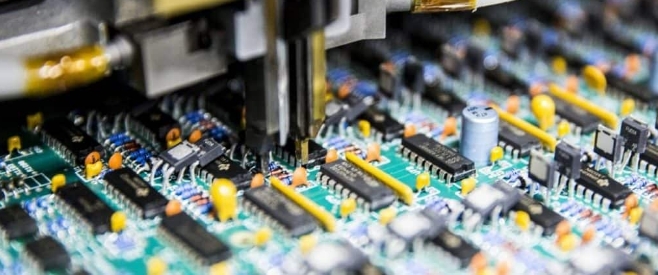In the rapidly evolving world of electronics, companies are constantly seeking ways to bring innovative products to market quickly and efficiently. One effective strategy is to leverage contract manufacturing for electronic assembly. This approach allows businesses to focus on their core competencies while outsourcing the complex and resource-intensive manufacturing processes. In this article, we will explore the ins and outs of contract manufacturing electronic assembly, its benefits, and how to choose the right partner.

Contract manufacturing in electronic assembly involves outsourcing the production of electronic products to specialized firms known as electronic contract manufacturers (ECMs). These manufacturers handle various aspects of the production process, including sourcing raw materials, assembling electronic components, and conducting quality control and testing. This model is widely used in industries such as consumer electronics, automotive, medical devices, and telecommunications.
Outsourcing electronic assembly to contract manufacturers can be highly cost-effective. ECMs benefit from economies of scale, bulk purchasing of raw materials, and optimized manufacturing processes. This allows them to offer competitive pricing, which can significantly reduce production costs for original equipment manufacturers (OEMs).
Contract manufacturers often invest in state-of-the-art equipment and technologies, such as surface mount technology (SMT) and automated assembly lines. By partnering with an ECM, companies can leverage these advanced capabilities without the need for significant capital investment.
By outsourcing electronic assembly, companies can focus on their core competencies, such as product design, marketing, and sales. This allows them to allocate resources more efficiently and drive innovation in their areas of expertise.
Contract manufacturing offers flexibility and scalability. Whether you need a small batch of prototypes or large-scale production runs, ECMs can adjust their capacity to meet your needs. This is particularly beneficial for startups and companies with fluctuating demand.
Reputable ECMs implement rigorous quality control measures and adhere to industry standards. This ensures that the assembled electronic products meet high-quality standards and perform reliably in the field. Quality assurance processes include assembly testing, inspection, and certification.
Printed circuit board assembly (PCBA) is the process of soldering electronic components onto a printed circuit board (PCB). This involves techniques such as surface mount technology (SMT) and through-hole soldering. The PCB serves as the backbone of the electronic product, providing the necessary electrical connections between components.
Sourcing high-quality electronic components is crucial for the success of any electronic assembly project. ECMs have established relationships with reliable suppliers and can procure components at competitive prices. This ensures the availability of raw materials and reduces the risk of supply chain disruptions.
Box build assembly, also known as system integration, involves assembling the entire electronic product, including the PCBA, enclosures, cables, and other sub-assemblies. This comprehensive approach ensures that the final product is fully functional and ready for deployment.
Quality control is an integral part of the electronic manufacturing process. ECMs implement various testing methods, such as in-circuit testing (ICT), functional testing, and environmental stress testing, to ensure that the assembled products meet specified requirements. This rigorous testing regime helps identify and rectify any defects before the products reach the market.
Timely delivery is critical in the electronics industry. ECMs prioritize efficient production schedules and logistics management to ensure that products are delivered on time. This helps companies meet market demands and maintain customer satisfaction.
Look for an ECM with a proven track record and extensive experience in your industry. An experienced manufacturer will have the technical expertise and knowledge to handle complex projects and deliver high-quality results.
Evaluate the technological capabilities of the ECM. Ensure that they have the necessary equipment and facilities to handle your specific requirements, such as SMT, automated assembly lines, and advanced testing equipment.
Quality assurance is paramount in electronic assembly. Choose a manufacturer that adheres to industry standards and has robust quality control processes in place. Ask for certifications and references to verify their commitment to quality.
Ensure that the ECM can scale production according to your needs. Whether you require small prototype runs or large-scale production, the manufacturer should be able to accommodate your requirements.
Effective communication and customer service are essential for a successful partnership. Choose an ECM that values customer relationships and provides timely updates and support throughout the manufacturing process.
Electronic contract manufacturing involves outsourcing the production of electronic products to specialized firms known as electronic contract manufacturers (ECMs). These firms handle various aspects of the production process, including sourcing raw materials, assembling components, and conducting quality control and testing.
The benefits of electronic contract manufacturing include cost-effective production, access to advanced technology, focus on core competencies, scalability, and quality assurance. It allows companies to reduce production costs, leverage advanced capabilities, and ensure high-quality products.
Printed circuit board assembly (PCBA) is the process of soldering electronic components onto a printed circuit board (PCB). This involves techniques such as surface mount technology (SMT) and through-hole soldering. The PCB provides the necessary electrical connections between components.
Box build assembly, also known as system integration, involves assembling the entire electronic product, including the PCBA, enclosures, cables, and other sub-assemblies. This comprehensive approach ensures that the final product is fully functional and ready for deployment.
When choosing an electronic contract manufacturer, consider factors such as experience and expertise, technological capabilities, quality assurance, flexibility and scalability, and customer service. Look for a manufacturer with a proven track record, advanced equipment, robust quality control processes, and excellent customer service.
Contract manufacturing for electronic assembly offers a strategic advantage for companies looking to streamline production, reduce costs, and bring high-quality electronic products to market quickly. By partnering with experienced and reliable electronic contract manufacturers, businesses can focus on innovation and growth while ensuring that their products meet the highest standards of quality and performance. Whether you are a startup or an established company, leveraging electronic manufacturing services can help you stay competitive and achieve your business goals.